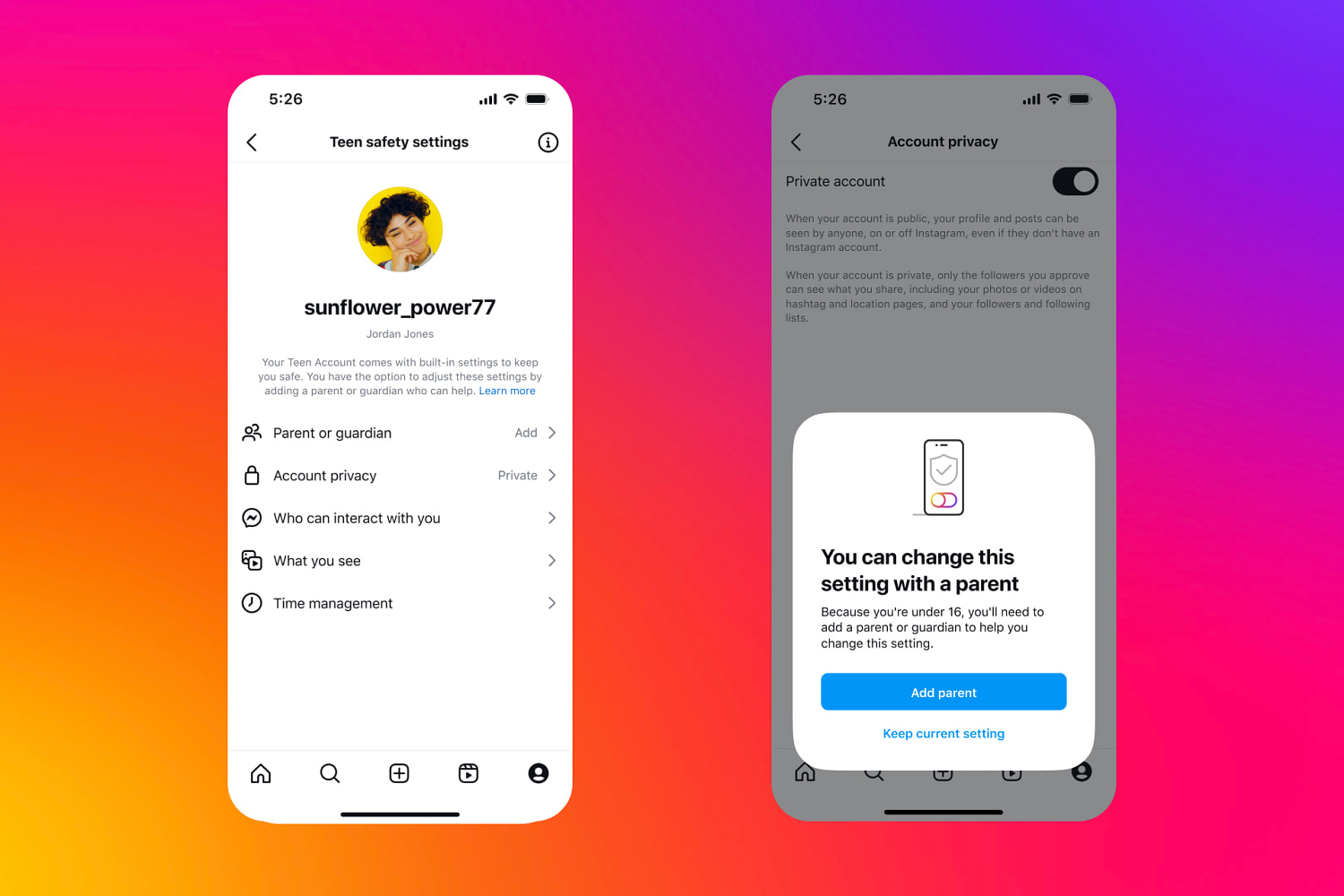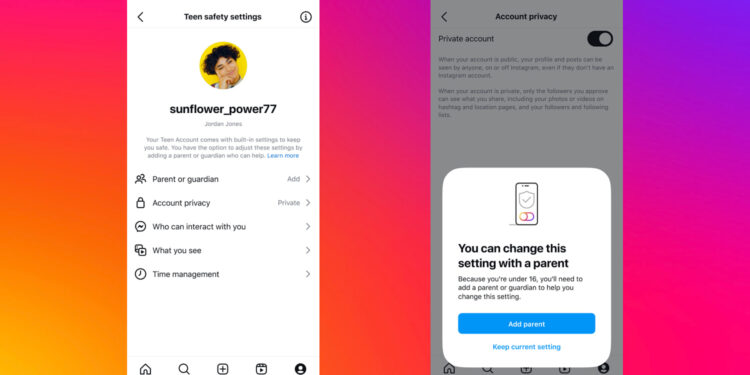
“One, it can be simpler and easier to use, and so that’s one of the goals of this launch,” she said. “Two, there’s some inconsistencies in the current settings that we do have. … And then the third thing is really just wanting to have more control and tools to help their teen online.”
The rollout won’t be immediate, however. New users will be defaulted into teen accounts upon sign-up if they are under 18, but existing teen users may not see immediate changes. Many around the world won’t be placed into teen accounts until next year, according to a Meta fact sheet.
Aside from the new privacy limits, such accounts will also be placed in the most restrictive content setting that limits potentially sensitive content from accounts they don’t follow. The accounts will have the Hidden Words feature on, as well, meaning offensive words or phrases should be automatically filtered from any comments or direct messages they receive.
Users under 16 will need parents’ or other guardians’ permission to change their new teen account settings, whereas teens older than 16 will be able to adjust them on their own unless their accounts are still linked to parental supervisors.
Meta expects teens to try to find workarounds, Gleit said, which is why it plans to test a slew of measures to prevent them from changing their ages or creating new accounts with adult birthdays.
“If you have one account and then you try to create a new account on the same phone, we will ask you to age-verify, so asking for a government ID or asking for a video selfie to prove your age,” Gleit said.
Meta might also be able to trace teens who use different devices to create adult accounts if they, for example, register with their original teen accounts’ same email addresses or phone numbers.
“And we’re also working on a technology to try to predict, for people that have a stated age as an adult, do we think they’re lying and they might actually be a teen,” Gleit said. “For those people, we also want to ask them to age-verify and put them in teen accounts, as well.”
Using artificial intelligence, the technology, which Meta claims is a first for the industry, aims to help Instagram predict whether users are over or under age 18 — even if their accounts list adult birthdays.







